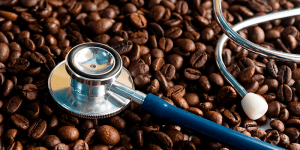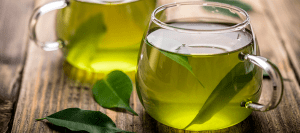Consumo de café asociado con reducción del riesgo de cáncer de hígado: un meta análisis.
27-04-2017
Numerosos estudios epidemiológicos han reportado resultados encontrados en cuanto al consumo de café y el riesgo de cáncer hepático. Se realizó un meta-análisis de estudios de casos y controles y de cohorte para investigar la asociación entre el consumo de café y el cáncer hepático. Las bases de datos consultadas fueron Medline, EMBASE, ISI Web of Science y la biblioteca Cochrane, incluyendo estudios publicados hasta mayo de 2012. Finalmente, se presenta un meta-análisis de nueve estudios de casos y controles y siete estudios de cohorte.
Sang LX, Chang B, Li XH, Jiang M. Consumption of coffee associated with reduced risk of liver cancer: a meta-analysis. BMC Gastroenterology 2013; 13:34.
1. Ferlay J, Bray F, Pisani P, et al: GLOBOCAN 2002: Cancer Incidence, Mortality, and Prevalence Worldwide, IARC CancerBase No. 5. version 2.0. Lyon, France: International Agency for Cancer Research 2004.
2. Stewart BW, Kleihues P: World cancer report. Lyon: IARC Press: Stewart BW, Kleihues P; 2003.
3. Srivatanakul P, Spriplung H, Deerasamee S: Epidemiology of liver cancer: an overview. Asian Pacific J Cancer Prev 2004, 5:118–125.
4. Llovet JM, Burroughs A, Bruix J: Hepatocellular carcinoma. Lancet 2003, 362:1907–1917.
5. Franceschi S, Montella M, Polesel J, et al: Hepatitis viruses, alcohol and tobacco in the etiology of hepatocellular carcinoma in Italy. Cancer Epidemiol Biomarkers Prev 2006, 15:683–689.
6. Yu MC, Yuan JM: Environmental factors and risk for hepatocellular carcinoma. Gastroenterology 2004, 127(Suppl 1):S72–S78.
7. Kiyosawa K, Umemura T, Ichijo T, et al: Hepatocellular carcinoma: Recent trends in Japan. Gastroenterology 2004, 127(suppl 1):S17–S26.
8. Aizawa Y, Shibamoto Y, Takagi I, et al: Analysis of factors affecting the appearance of hepatocellular carcinoma in patients with chronic hepatitis C.A long term follow-up study after histologic diagnosis. Cancer 2000, 89:53–59.
9. Greenland S: Quantitative methods in the review of epidemiologic literature. Epidemiol Rev 1987, 9:1–30.
10. Wells GA, Shea B, O’Connell D, et al: The Newcastle-Ottawa Scale (NOS) for assessing the quality of nonrandomised studies in the meta-analysis. Available from; 2011. http://www.ohri.ca/programs/clinical_epidemiology/oxford.asp (cited 19 March 2011).
11. Kuper H, Tzonou A, Kaklamani E, et al: Tobacco smoking, alcohol consumption and their interaction in the causation of hepatocellular carcinoma. Int J Cancer 2000, 85:498–502.
12. Gallus S, Bertuzzi M, Tavani A, et al: Does coffee protect against hepatocellular carcinoma? Br J Cancer 2002, 87:956–959.
13. Gelatti U, Covolo L, Franceschini M, et al: Coffee consumption reduces the risk of hepatocellular carcinoma independently of its aetiology: a case– control study. J Hepatol 2005, 42:528–534.
14. Ohfuji S, Fukushima W, Tanaka T, et al: Coffee consumption and reduced risk of hepatocellular carcinoma among patients with chronic type C liver disease: a case–control study. Hepatol Res 2006, 36:201–208.
15. Tanaka K, Hara M, Sakamoto T, et al: Inverse association between coffee drinking and the risk of hepatocellular carcinoma:a case–control study in Japan. Cancer Sci 2007, 98:214–218.
16. Montella M, Polesel J, La Vecchia C, et al: Coffee and tea consumption and risk of hepatocellular carcinoma in Italy. Int J Cancer 2007, 120:1555–1559.
17. Wakai K, Kurozawa Y, Shibata A, et al: Liver cancer risk, coffee, and hepatitis C virus infection: a nested case–control study in Japan. Br J Cancer 2007, 97:426 428.
18. Ohishi W, Fujiwara S, Cologne JB, et al: Risk factors for hepatocellular carcinoma in a Japanese population: a nested case–control study. Cancer Epidemiol Biomarkers Prev 2008, 17:846–854.
19. Leung WW, Ho SC, Chan HL, et al: Moderate coffee consumption reduces the risk of hepatocellular carcinoma in hepatitis B chronic carriers: a case- control study. J Epidemiol Community Health 2011, 65:556–558.
20. Shimazu T, Tsubono Y, Kuriyama S, et al: Coffee consumption and the risk of primary liver cancer: pooled analysis of two prospective studies in Japan. Int J Cancer 2005, 116:150–154.
21. Inoue M, Yoshimi I, Sobue T, et al: Influence of coffee drinking on subsequent risk of hepatocellular carcinoma: a prospective study in Japan. J Natl Cancer Inst 2005, 97:293–300.
22. Kurozawa Y, Ogimoto I, Shibata A, et al: Coffee and risk of death from hepatocellular carcinoma in a large cohort study in Japan. Br J Cancer
2005, 93:607–610.
23. Hu G, Tuomilehto J, Pukkala E, et al: Joint effects of coffee consumption and serum gam-ma-glutamyltransferase on the risk of liver cancer. Hepatology 2008, 48:129–136.
24. Inoue M, Kurahashi N, Iwasaki M, et al: Effect of coffee and green tea consumption on the risk of liver cancer:cohort analysis by hepatitis virus infection status. Cancer Epidemiol Biomarkers Prev 2009, 18:1746–1753.
25. Johnson S, Koh WP, Wang R, et al: Coffee consumption and reduced risk of hepatocellular carcinoma:findings from the Singapore Chinese Health Study. Cancer Causes Control 2011, 22:503–510.
26. Higgins JP, Thompson SG: Quantifying heterogeneity in a meta-analysis. Stat Med 2002, 21:1539–1558.
27. Hedges LV, Pigott TD: The power of statistical tests in meta-analysis. Psychol Methods 2001, 6:203–217.
28. Begg CB, Mazumdar M: Operating characteristics of a rank correlation test for publication bias. Biometrics 1994, 50:1088–1101.
29. Egger M, Smith GD: Bias in location and selection of studies. BMJ 1998, 316:61–66.
30. Bravi F, Bosetti C, Tavani A, et al: Coffee drinking and hepatocellular carcinoma risk: a meta-analysis. Hepatology 2007, 46:430–435.
31. Larsson SC, Wolk A: Coffee consumption and risk of liver cancer: a meta- analysis. Gastroenterology 2007, 132:1740–1745.
32. Asaad NA, Zeng ZC, Guan J, et al: Homologousre combination as a potential Target for caffeine radiosensitization in mammalian cells: reduced caffeine radio sensitizationin XRCC2 and XRCC3 mutants. Oncogene 2000, 19:5788–5800.
33. Saiki S, Sasazawa Y, Imamichi Y, et al: Caffeine induces apoptosis by enhancemen t of autophagy via PI3K/Akt/mTOR/p70S6K inhibition. Autophagy 2011, 7:176 187.
34. Joerges C, Kuntze I, Herzinger T: Induction of a caffeine-sensitive S-phase cell cycle checkpoint by psoralen plus ultraviolet A radiation. Oncogene 2003, 22:6119–6128.
35. Azam S, Hadi N, Khan NU, et al: Antioxidant and prooxidant properties of caffeine, theobromine and xanthine. Med Sci Monit 2003, 9:BR325–BR330.
36. Hosaka S, Kawa S, Aoki Y, et al: Hepatocarcinogenesis inhibition by caffeine in ACI rats treated with 2-acetylaminofluorene. Food Chem Toxicol 2001, 39:557–561.
37. Cavin C, Holzhaeuser D, Scharf G, et al: Cafestol and kahweol, two coffee specific diterpenes with anticarcino-Genic activity. Food Chem Toxicol
2002, 40:1155–1163.
38. Majer BJ, Hofer E, Cavin C, et al: Coffee diterpenes prevent the genotoxic effects of 2-amino-1-methyl-6-phenylimidazo[4,5-b]pyridine(PhIP)and N nitro- Sodimethylamine in a human derived liver cell line(HepG2). Food Chem Toxicol 2005, 43:433–441.
39. Cavin C, Holzhauser D, Constable A, et al: The coffee-specific diterpenes cafestol and kahweol protect against afla-toxinB1-induced genotoxicity through a dual mechanism. Carcinogenesis 1998, 19:75–1369.
40. Feng R, Lu Y, Bowman LL, et al: Inhibition of activator protein-1, NF-kappaB, and MAPKs and induction of phase 2 detoxifying enzyme activity by chlorogenic acid. J Biol Chem 2005, 280:27888–27895.















